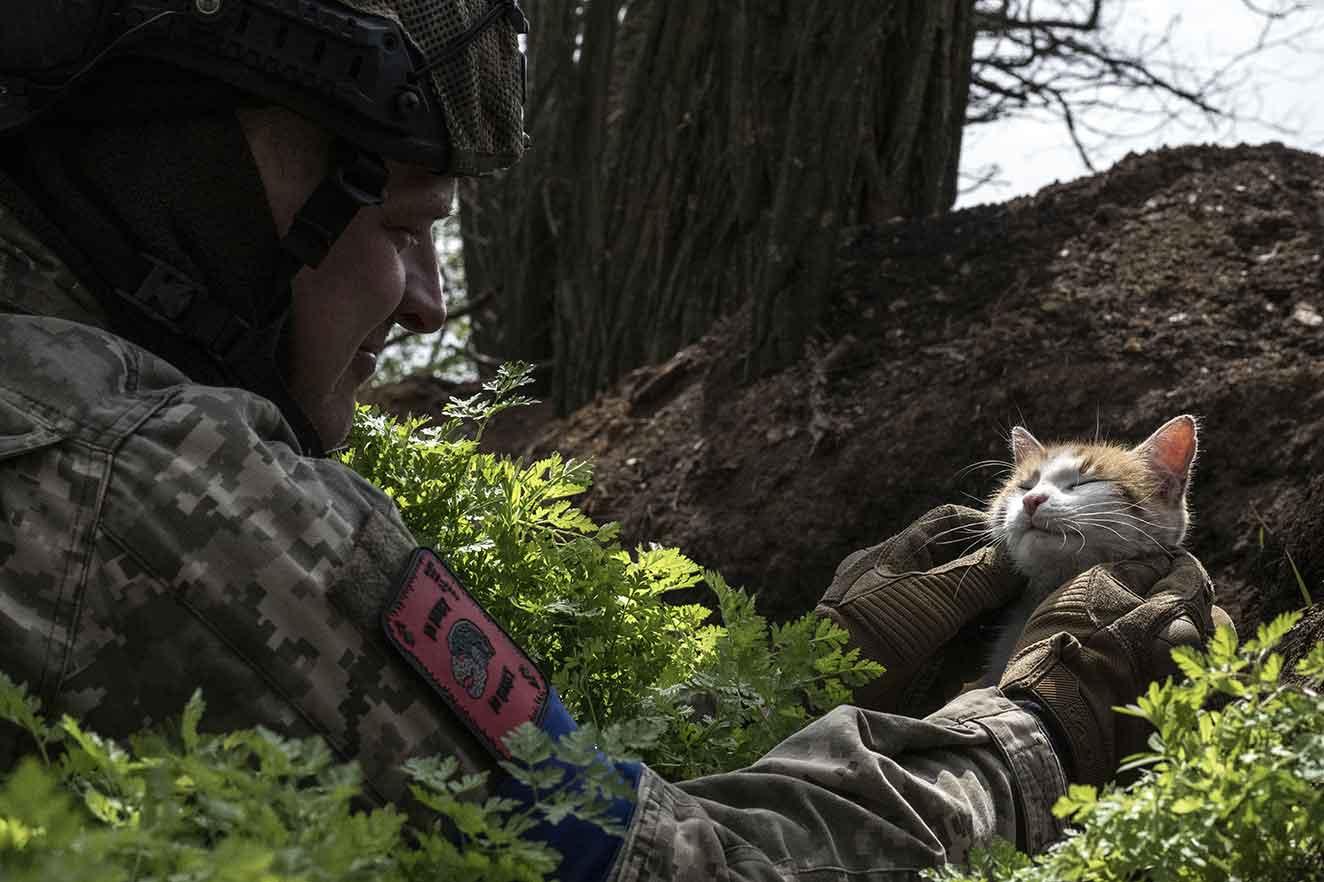Back in the URSS
In a story published by The Guardian The Guardian, loc, Mariupol residents recount "primitive" living standards, propaganda in schools and the constant risk of arrest after the city, once a thriving European metropolis and port on the Sea of Azov, came under Russian military occupation. In a series of anonymous interviews, locals said Mariupol turned into a grim version of the Soviet Union, according to the newspaper. The war decimated it: out of 400,000 people a year ago, only about 120,000 live in Mariupol today. More than 100,000 were killed, according to local sources, and the others emigrated.
What's beyond Bakhmut?
Ahead of Ukraine's counter-offensive to reclaim Russian-occupied territory, several pieces of information put together by the author of an opinion piece published by Kyivpost.com paint an optimistic scenario for Kiev. And it all builds up on the fate of Bakhmut, where Ukrainian forces have recently scored some remarkable successes. Among the elements that increase the Ukrainian army's chances of victory, the author cites Britain's delivery of Storm Shadow cruise missiles, the poor physical and mental state of Russian troops, the increasingly frequent rumours of deteriorating relations between commander in chief of Wagner forces and the Russian military leadership, and uncertainty about the health of President Belarus.
Prigozhin's offer
Towards the end of January, while his mercenary forces were dying by the thousands in the battle for Bakhmut, the owner of Wagner Group, Yevgeny Prigozhin, made Ukraine an unusual offer. According to leaked top-secret documents intended for senior military and intelligence officers in the Ukrainian camp, reviewed by Washington Post, Prigozhin said that if Ukrainian commanders withdrew their soldiers from around Bakhmutului, he would provide Kyiv with information about Russian troops' positions. What Ukrainian officials, including President Zelensky, commented on the leaks, and what US officials declared anonymously, in the american journal's article published recently.
Europe rising from the ashes of the Russian empire
President Vladimir Putin's attempt to re-establish the Russian empire by re-colonising Ukraine opened the door to a post-imperial Europe. Ironically, in order to secure its future and to counter Russian aggression, European Union must itself adopt some of the traits of an empire. The global picture, however, includes a strategic partnership of Europe with the "post-imperial American empire", designed to prevent the return of a declining Russian empire and to confront a rising Chinese empire. This is the thesis of the renowned British historian Timothy Garton Ash, in an extensive analysis published by Foreign Affairs.
Spies wanted
CIA efforts to recruit Russian spies escalated to a new level. The US agency produced a recruitment video and distributed it on YouTube, Twitter, Instagram and Facebook, as well as on its own channel on Telegram, the most popular uncensored social network among Russian users. The video includes instructions on how interested parties can contact the CIA anonymously and securely. In parallel, the FBI also launched a similar project targeting Russians in the United States, which uses a Putin quote telling readers in Russian: "We are ready to listen." You can read all about this in an article published on CNN website.
Z's death
Shortly after the Russian army entered Ukraine, in Russia, seemingly out of nowhere, the Z symbol went viral. Its meteoric rise caused quite a stir, making the headlines all around the world. But not anymore, as the symbol's visibility went into decline. Its absence was noticed by Twitter users at the Russian military parade held on Victory Day in May. "When the war started, it was not a statesponsored symbol. But eventually the state took control of it." This was one of the factors that eventually led to the symbol's decline in popularity, states for Euronews Emily Ferris, researcher specialising in Russian politics at the Royal United Services Institute, who analyses this phenomenon extensively.
Trench fauna
There are a lot of abandoned animals, especially dogs and cats, seeking both food and companionship in the cities Ukraine is now fighting for. In nearly every military unit, every headquarters, every trench - wherever Ukrainian soldiers are, there is always a dog or cat living with them. And their role is extremely important. Facing the cruelty of war on a daily basis, animals help us keep a little love in our hearts, say Ukrainian soldiers. Sometimes they give hope, inspire, sometimes they actually help the fighting effort. Read about this extraordinary relationship between abandoned animals and those on the frontline in a moving letter published by politico.eu.
Visual history
The Moscow Time recently published a series of photos depicting Russian authorities' growing efforts to recruit "additional manpower for both front lines and internal defence efforts".

















